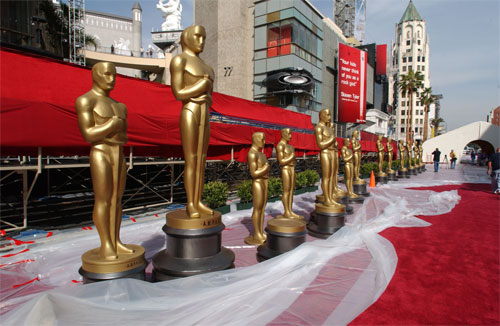
“Ave Maria” is a film that was nominated at the Oscars for Best Foreign Short at the 2016 Oscars. It is a fictional comedy, directed by Israeli-born Basil Khalil; and it is marred by a not-too-subtle disdain for Judaism.
Although filmed in Israel with Israeli actors, it was submitted as a “Palestinian” film. In the film, a Jewish family invades a Catholic convent. The ensuing culture clash is creative, with the occasional dose of dark humor. But many of Khalil’s ideas are sidetracked by his dislike for Jewish Israelis.
Minutes into the film, viewers are treated to the Jewish visitors causing the nuns to break their vow of silence, destroying a Christian statue, and later even violating their own religious beliefs. Both Khalil and Daniel Yáñez Khalil, who co-wrote the script, either are ignorant of Jewish religious practice or seek to use the film as an opportunity to denigrate Judaism.
The film begins with a car, driven by Jews, destroying a Mary Magdalene figure outside the convent. The Jewish family then loudly knocks on the convent’s door — in stark contrast to the silent surroundings at the convent — and demands help.
It is here that “Ave Maria” takes absurdity to a new level. Moshe, an observant Jew, refuses to use a cell phone to call a taxi because it is Shabbat. When a nun refuses to make the call for him, he quickly changes his mind and makes the call. His strict observance of Judaism seems to instantly vanish into thin air because he does not want his family to be inconvenienced by spending a night at the covenant. But now he demands a Jewish cab driver, not an Arab one, suggesting bigotry.
In reality, of course, an observant Jew would refuse allowing another Jewish person to break the laws of the Sabbath in order to drive him, unless a life was at risk.
Moshe then changes his mind, and says he will not take a taxi because it is too expensive, even though it is clear that he believes that both his safety and the safety of his family are at risk. Thus, yet another classic anti-Jewish stereotype of miserliness.
The climax of the film is a comedic scene in which the nuns help fix an old car with the help of the Jewish visitors. As the Jewish family is about to drive off, they worry that Israeli guards they may encounter will shoot them because the car looks like a stereotypical “Arab” vehicle. So, to fool the guards, the Jews borrow a statue of Jesus, which they prop up on the roof of the car. The irony here is that it is Jewish civilians who have the most to fear in the West Bank, as they have been targeted repeatedly by Palestinian terrorists on roads in that territory.
The juxtaposition of the convent in the wilderness, the silent nuns and the loud Israelis could have been a great recipe for a comedy. Indeed, addressing Arab and Jewish differences in Israel through comedy has been done successfully by others such as Sayed Kashua, an Arab-Israeli writer who has not been shy about criticizing Israel. Yet, unlike Khalil, Kashua always makes some effort to keep things even handed, with his Arab characters often taking on equally absurd roles and behaviors.

“Ave Maria” blends together ignorance, bigoted anti-Israel sentiment and classic elements of antisemitism. In Khalil’s world, Jews destroy sacred Christian objects and ignore their own religious laws due to being racist, cheap and selfish. The film lacks the slightest attempts at even-handedness nor does it delve into any depth. It is clear what Khalil’s intentions are: to demonize religious Jewish Israelis.
Originally published at the Algemeiner.
Contributed by Gilad Skolnick, Director of Campus Programming at CAMERA.

